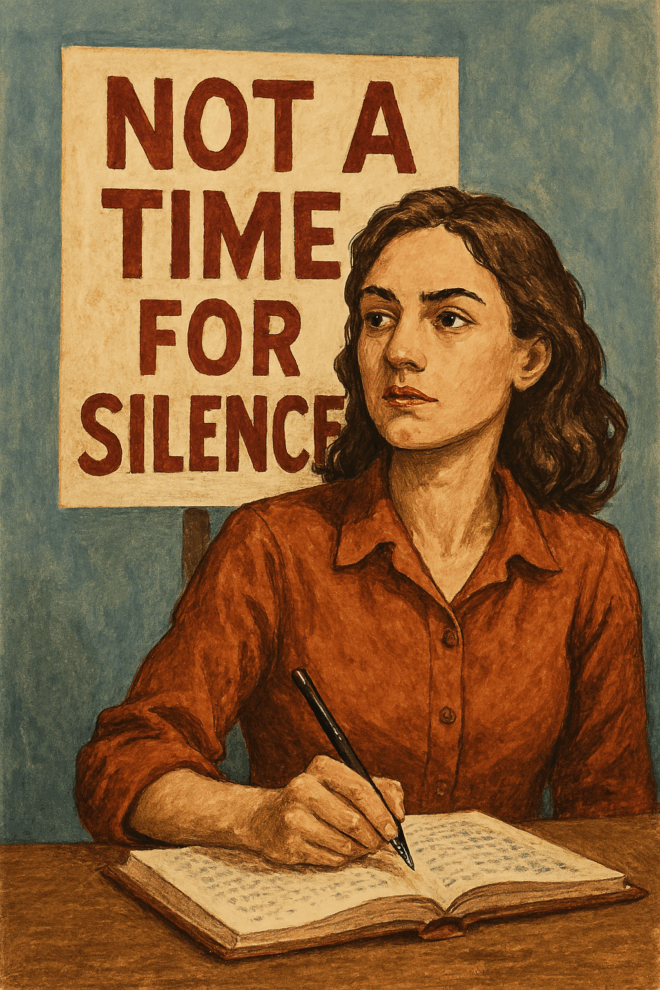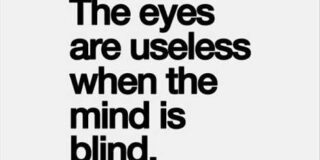
A Lion used to prowl about a field in which Four Oxen used to dwell. Many a time he tried to attack them; but whenever he came near they turned their tails to one another, so that whichever way he approached them he was met by the horns of one of them. At last, however, they fell a-quarrelling among themselves, and each went off to pasture alone in a separate corner of the field. Then the Lion attacked them one by one and soon made an end of all four.
The Lion and the Three Bulls, Aesop.
The intent of the organisers of the Bendigo Writers Festival in adopting the La Trobe University Code of Conduct can cynically be considered to ensure that funding was secured for the festival, or perhaps it was simply to align with current academic expectations. Yet the accepted behaviours within institutions frequently fail to align with those of a broader society. More importantly, academia and the arts are the very spaces by which social norms are often challenged. For all the effort that goes into drafting legislation, codes and policies, the vested interests of those who lack perspective or worry about being admonished often bow to the pressures imposed by more invested beneficiaries.
Take Ernst and Young, the Big4 accounting firm. In 2023, it conducted an internal survey of staff in the Oceania region following the suicide of Aishwarya Venkatachalam. Aishwarya had complained to friends about racism in the workplace and ended her life at EY’s Sydney office in August 2022 after being shunned during a night out with colleagues. The report found that bullying and harassment were rife within the firm, a clear failure of its own Global Code of Conduct that has been place for fifteen years.
In July 2025, Jillian Segal, the Australia Antisemitism Envoy, produced a report with 16 recommendations. Among them, was that organisations be denied taxpayers funding for failing to address antisemitism, whilst individuals including academics should be terminated. Racism is a crime, legislated under the Racial Discrimination Act 1975 and has been designed without favour for any particular ethnicity, race, nationality, colour or descent. It provides for protection against attacks on the practice of religion, political, social, cultural or economic views. It places everyone “on an equal footing”. More importantly, it states that should one group be favoured over another through Commonwealth, State or Territory legislation, then that right is covered upon all.
There is a caveat – “notwithstanding anything in that law”, a loophole that provides for exceptions to the Racial Discrimination Act. It is this which will be used to leverage arguments for special laws to protect or deny the rights of a subset of people. In addition, the Australian Constitution enables legislation to make laws regarding immigration.
The contradictions between Segal’s recommendations and the RDA abound. The Act intends to protect employees from disparities in work conditions based upon race, colour, nationality or ethnicity, or due to their associations, and it seeks to protect financial support. It is this last that is most concerning among the Antisemitism Envoy’s recommendations, for it conveys a threat to universities for the protection of freedom of speech and expression by imperilling government funding. The recommendations themselves are intimidatory and their implementation would be coercive.
Resistance to the proposed new laws are already being felt. The 2025 Bendigo Writers Festival, grappling with the boycott of a slew of writers due to its adoption of the La Trobe University code of conduct which includes the IHRA definition of antisemitism, has been forced to cancel its opening and closing galas. Ironically, La Trobe University asserts its support for diversity and condemnation of racism.
The IHRA definition has drawn criticism for equating criticism of the State of Israel and Zionism with racism. As the world’s watches the collective punishment of Palestinians for the October 7 attacks, the adoption of the restrictive definition has had the effect of silencing legitimate dissent by human rights advocates, academics and individuals. David Feldman argues that it sets antisemitism apart from all other types of discrimination.
Bendigo Writers Festival organisers acceptance of the IHRA definition shows a worrying trend in literary circles. It echoes the unilateral suppression of author Adania Shibli by Litprom from the LiBeraturpreis for her novel “Minor Detail”. The German festival cancelled the award ceremony of the prize to Shibli in response to complaints from unspecified journalists. In response, 1000 writers wrote a letter of support for Shibli, condemning the prize organisers. In Australia, with the Humanity March still fresh in everyone’s mind and another planned in each capital city next week, 22 of 64 events in the program due to writer boycotts.
In May 2025, Sisonke Msimang withdrew from the Sydney Writers Festival due to ethical concerns regarding AirBnB funding the event. AirBnB offers residences in the Palestinian West Bank, settlements considered illegal by the UN. A little earlier, in February, Kathy Shand resigned from the SWF Board in protest about her concerns of ensuring a culturally safe space. Perhaps in contrast, Adelaide Writers Festival Board member Louise Adler asserted in 2023 that literary festivals should be about the quality of writing, rather than seeking to resolve political issues.
The arguments of both have merit. If not for boycotts, South Africa would still be burdened by apartheid. If not for the willingness of people of opposing views to come together and discuss their political differences, the Troubles in Northern Ireland might never have been overcome. The arts provide an avenue for the expression of all that is most personal – love, achievement, pride, as well as loss, heartache and despair. They are the means via which we come to not only see, but also understand the effect of the world on others, providing a portal for self-reflection and consideration of our own opinions and actions.
A code of conduct is only a good as those who enforce it. Enforcement is not just about ensuring that breaches of the conduct are addressed, but also holding to account those who subvert its intent to access a personal benefit. EY Recruitment Manager Gillian Morphett, did precisely that to avoid being required to explain how she could have provided material an ACT Government employee that EY could not have held, let alone in breach of privacy laws.
Similarly Angel Marina, the supposed recipient of the material from Morphett, subverted the Australian Public Service Code of Conduct in submitting fraudulent material under the guise of a whistleblower to see his line manager, the Indigenous Commissioner, dismissed from his job. Having racially abused the Commissioner for over two years, he was not once held accountable in line with the Radical Discrimination Act and within two years, had managed to submitted a fraudulent public interest disclosure (PID) that resulted in the dismissal of the Indigenous Commissioner. Some of the material in the PID was sourced from Ernst & Young. Marina, enabled by a raft of senior managers and executive including Director Corporate Services Meredith Whitten, Chief Executive Mike Harris, Auditor General Tu Pham and Manager Louise Fitzgerald, was backed by the Government Solicitor and his office of staff. Fifteen years, Bakchos, still fighting these issues, found himself in court fighting against some of the material, which he ultimately proved to be lies, crushing the prosecution case.
No-one would dare to attach a Jewish person in the way that Indigenous people are in Australia. With such limited agency and far less financial backing, many Aboriginal and Torres Strait Islander people are forced to accept the best deal that they can get, rather than fight it out in court.
Codes of conduct mean nothing if the intent is to undermine, suppress or devalue the opinions, voice and expression of others. They are divisive when they marginalise or intimidate people, rather than raising the bar for behaviour and interaction. Negative sentiments that are not addressed will fester and eventually find vent. It is this that the Bendigo Festival has become.
The Zionist lobby pushed for people to vote no in the recent Voice Referendum, arguing that a statement of recognition via a preamble in the Constitution afforded Indigenous people exceptional privileges. It did not. However, the measures that Jillian Segal seeks to implement would confer exceptional privileges on Israelis and Jewish people. A code of conduct to marginalises or sets a group of people above others is not a positive statement of inclusion and commonality, but a statement of difference and privilege. The IHRA definition of antisemitism application in academia is worrying enough; extending that reach to festivals is counter to the multiculturual ethos that has enabled this country to forge ahead in the past half century. The Racial Discrimination Act already provides an means for protection of all people that; the recommendations of the Antisemitism envoy and their voluntary adoption by some sectors fails to keep everyone “on an equal footing”. The Bendigo Wristers Festival has traded its broad foundation for a narrow rockface upon which only a few are willing to stand. It’s a poor decision that will cost the festival not only in this year, but in the years to come.


